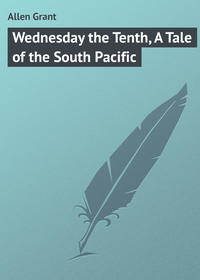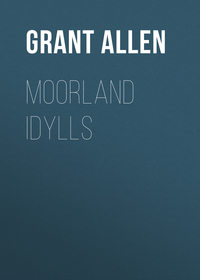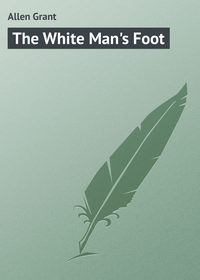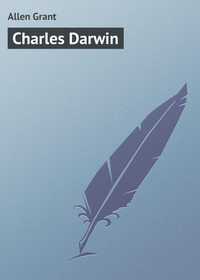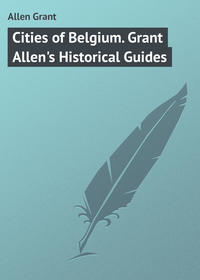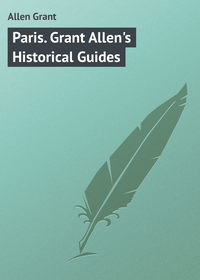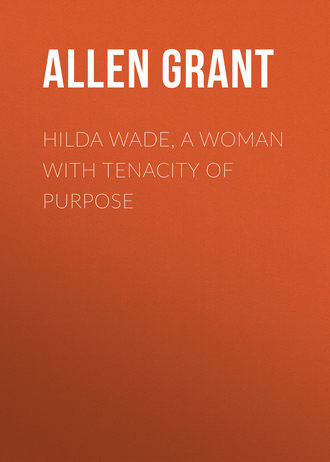 полная версия
полная версияHilda Wade, a Woman with Tenacity of Purpose
I bought a pony at Salisbury—a pretty little seasoned sorrel mare—and set out to find Hilda. My way lay over a brand-new road, or what passes for a road in South Africa—very soft and lumpy, like an English cart-track. I am a fair cross-country rider in our own Midlands, but I never rode a more tedious journey than that one. I had crawled several miles under a blazing sun along the shadeless new track, on my African pony, when, to my surprise I saw, of all sights in the world, a bicycle coming towards me.
I could hardly believe my eyes. Civilisation indeed! A bicycle in these remotest wilds of Africa!
I had been picking my way for some hours through a desolate plateau—the high veldt—about five thousand feet above the sea level, and entirely treeless. In places, to be sure, a few low bushes of prickly aspect rose in tangled clumps; but for the most part the arid table-land was covered by a thick growth of short brown grass, about nine inches high, burnt up in the sun, and most wearisome to look at. The distressing nakedness of a new country confronted me. Here and there a bald farm or two had been literally pegged out—the pegs were almost all one saw of them as yet; the fields were in the future. Here and there, again, a scattered range of low granite hills, known locally as kopjes—red, rocky prominences, flaunting in the sunshine—diversified the distance. But the road itself, such as it was, lay all on the high plain, looking down now and again into gorges or kloofs, wooded on their slopes with scrubby trees, and comparatively well-watered. In the midst of all this crude, unfinished land, the mere sight of a bicycle, bumping over the rubbly road, was a sufficient surprise; but my astonishment reached a climax when I saw, as it drew near, that it was ridden by a woman!
One moment later I had burst into a wild cry, and rode forward to her hurriedly. “Hilda!” I shouted aloud, in my excitement: “Hilda!”
She stepped lightly from her pedals, as if it had been in the park: head erect and proud; eyes liquid, lustrous. I dismounted, trembling, and stood beside her. In the wild joy of the moment, for the first time in my life, I kissed her fervently. Hilda took the kiss, unreproving. She did not attempt to refuse me.
“So you have come at last!” she murmured, with a glow on her face, half nestling towards me, half withdrawing, as if two wills tore her in different directions. “I have been expecting you for some days; and, somehow, to-day, I was almost certain you were coming!”
“Then you are not angry with me?” I cried. “You remember, you forbade me!”
“Angry with you? Dear Hubert, could I ever be angry with you, especially for thus showing me your devotion and your trust? I am never angry with you. When one knows, one understands. I have thought of you so often; sometimes, alone here in this raw new land, I have longed for you to come. It is inconsistent of me, of course; but I am so solitary, so lonely!”
“And yet you begged me not to follow you!”
She looked up at me shyly—I was not accustomed to see Hilda shy. Her eyes gazed deep into mine beneath the long, soft lashes. “I begged you not to follow me,” she repeated, a strange gladness in her tone. “Yes, dear Hubert, I begged you—and I meant it. Cannot you understand that sometimes one hopes a thing may never happen—and is supremely happy because it happens, in spite of one? I have a purpose in life for which I live: I live for it still. For its sake I told you you must not come to me. Yet you HAVE come, against my orders; and—” she paused, and drew a deep sigh—“oh, Hubert, I thank you for daring to disobey me!”
I clasped her to my bosom. She allowed me, half resisting. “I am too weak,” she murmured. “Only this morning, I made up my mind that when I saw you I would implore you to return at once. And now that you are here—” she laid her little hand confidingly in mine—“see how foolish I am!—I cannot dismiss you.”
“Which means to say, Hilda, that, after all, you are still a woman!”
“A woman; oh, yes; very much a woman! Hubert, I love you; I half wish I did not.”
“Why, darling?” I drew her to me.
“Because—if I did not, I could send you away—so easily! As it is—I cannot let you stop—and… I cannot dismiss you.”
“Then divide it,” I cried gaily; “do neither; come away with me!”
“No, no; nor that, either. I will not stultify my whole past life. I will not dishonour my dear father’s memory.”
I looked around for something to which to tether my horse. A bridle is in one’s way—when one has to discuss important business. There was really nothing about that seemed fit for the purpose. Hilda saw what I sought, and pointed mutely to a stunted bush beside a big granite boulder which rose abruptly from the dead level of the grass, affording a little shade from that sweltering sunlight. I tied my mare to the gnarled root—it was the only part big enough—and sat down by Hilda’s side, under the shadow of a great rock in a thirsty land. I realised at that moment the force and appropriateness of the Psalmist’s simile. The sun beat fiercely on the seeding grasses. Away on the southern horizon we could faintly perceive the floating yellow haze of the prairie fires lit by the Mashonas.
“Then you knew I would come?” I began, as she seated herself on the burnt-up herbage, while my hand stole into hers, to nestle there naturally.
She pressed it in return. “Oh, yes; I knew you would come,” she answered, with that strange ring of confidence in her voice. “Of course you got my letter at Cape Town?”
“I did, Hilda—and I wondered at you more than ever as I read it. But if you KNEW I would come, why write to prevent me?”
Her eyes had their mysterious far-away air. She looked out upon infinity. “Well, I wanted to do my best to turn you aside,” she said, slowly. “One must always do one’s best, even when one feels and believes it is useless. That surely is the first clause in a doctor’s or a nurse’s rubric.”
“But WHY didn’t you want me to come?” I persisted. “Why fight against your own heart? Hilda, I am sure—I KNOW you love me.”
Her bosom rose and fell. Her eyes dilated. “Love you?” she cried, looking away over the bushy ridges, as if afraid to trust herself. “Oh, yes, Hubert, I love you! It is not for that that I wish to avoid you. Or, rather, it is just because of that. I cannot endure to spoil your life—by a fruitless affection.”
“Why fruitless?” I asked, leaning forward.
She crossed her hands resignedly. “You know all by this time,” she answered. “Sebastian would tell you, of course, when you went to announce that you were leaving Nathaniel’s. He could not do otherwise; it is the outcome of his temperament—an integral part of his nature.”
“Hilda,” I cried, “you are a witch! How COULD you know that? I can’t imagine.”
She smiled her restrained, Chaldean smile. “Because I KNOW Sebastian,” she answered, quietly. “I can read that man to the core. He is simple as a book. His composition is plain, straightforward, quite natural, uniform. There are no twists and turns in him. Once learn the key, and it discloses everything, like an open sesame. He has a gigantic intellect, a burning thirst for knowledge; one love, one hobby—science; and no moral instincts. He goes straight for his ends; and whatever comes in his way,” she dug her little heel in the brown soil, “he tramples on it as ruthlessly as a child will trample on a worm or a beetle.”
“And yet,” I said, “he is so great.”
“Yes, great, I grant you; but the easiest character to unravel that I have ever met. It is calm, austere, unbending, yet not in the least degree complex. He has the impassioned temperament, pushed to its highest pitch; the temperament that runs deep, with irresistible force; but the passion that inspires him, that carries him away headlong, as love carries some men, is a rare and abstract one—the passion of science.”
I gazed at her as she spoke, with a feeling akin to awe. “It must destroy the plot-interest of life for you, Hilda,” I cried—out there in the vast void of that wild African plateau—“to foresee so well what each person will do—how each will act under such given circumstances.”
She pulled a bent of grass and plucked off its dry spikelets one by one. “Perhaps so,” she answered, after a meditative pause; “though, of course, all natures are not equally simple. Only with great souls can you be sure beforehand like that, for good or for evil. It is essential to anything worth calling character that one should be able to predict in what way it will act under given circumstances—to feel certain, ‘This man will do nothing small or mean,’ ‘That one could never act dishonestly, or speak deceitfully.’ But smaller natures are more complex. They defy analysis, because their motives are not consistent.”
“Most people think to be complex is to be great,” I objected.
She shook her head. “That is quite a mistake,” she answered. “Great natures are simple, and relatively predictable, since their motives balance one another justly. Small natures are complex, and hard to predict, because small passions, small jealousies, small discords and perturbations come in at all moments, and override for a time the permanent underlying factors of character. Great natures, good or bad, are equably poised; small natures let petty motives intervene to upset their balance.”
“Then you knew I would come,” I exclaimed, half pleased to find I belonged inferentially to her higher category.
Her eyes beamed on me with a beautiful light. “Knew you would come? Oh, yes. I begged you not to come; but I felt sure you were too deeply in earnest to obey me. I asked a friend in Cape Town to telegraph your arrival; and almost ever since the telegram reached me I have been expecting you and awaiting you.”
“So you believed in me?”
“Implicitly—as you in me. That is the worst of it, Hubert. If you did NOT believe in me, I could have told you all—and then, you would have left me. But, as it is, you KNOW all—and yet, you want to cling to me.”
“You know I know all—because Sebastian told me?”
“Yes; and I think I even know how you answered him.”
“How?”
She paused. The calm smile lighted up her face once more. Then she drew out a pencil. “You think life must lack plot-interest for me,” she began, slowly, “because, with certain natures, I can partially guess beforehand what is coming. But have you not observed that, in reading a novel, part of the pleasure you feel arises from your conscious anticipation of the end, and your satisfaction in seeing that you anticipated correctly? Or part, sometimes, from the occasional unexpectedness of the real denouement? Well, life is like that. I enjoy observing my successes, and, in a way, my failures. Let me show you what I mean. I think I know what you said to Sebastian—not the words, of course, but the purport; and I will write it down now for you. Set down YOUR version, too. And then we will compare them.”
It was a crucial test. We both wrote for a minute or two. Somehow, in Hilda’s presence, I forgot at once the strangeness of the scene, the weird oddity of the moment. That sombre plain disappeared for me. I was only aware that I was with Hilda once more—and therefore in Paradise. Pison and Gihon watered the desolate land. Whatever she did seemed to me supremely right. If she had proposed to me to begin a ponderous work on Medical Jurisprudence, under the shadow of the big rock, I should have begun it incontinently.
She handed me her slip of paper; I took it and read: “Sebastian told you I was Dr. Yorke-Bannerman’s daughter. And you answered, ‘If so, Yorke-Bannerman was innocent, and YOU are the poisoner.’ Is not that correct?”
I handed her in answer my own paper. She read it with a faint flush. When she came to the words: “Either she is not Yorke-Bannerman’s daughter; or else, Yorke-Bannerman was not a poisoner, and someone else was—I might put a name to him,” she rose to her feet with a great rush of long-suppressed feeling, and clasped me passionately. “My Hubert!” she cried, “I read you aright. I knew it! I was sure of you!”
I folded her in my arms, there, on the rusty-red South African desert. “Then, Hilda dear,” I murmured, “you will consent to marry me?”
The words brought her back to herself. She unfolded my arms with slow reluctance. “No, dearest,” she said, earnestly, with a face where pride fought hard against love. “That is WHY, above all things, I did not want you to follow me. I love you; I trust you: you love me; you trust me. But I never will marry anyone till I have succeeded in clearing my father’s memory. I KNOW he did not do it; I KNOW Sebastian did. But that is not enough. I must prove it, I must prove it!”
“I believe it already,” I answered. “What need, then, to prove it?”
“To you, Hubert? Oh, no; not to you. There I am safe. But to the world that condemned him—condemned him untried. I must vindicate him; I must clear him!”
I bent my face close to hers. “But may I not marry you first?” I asked—“and after that, I can help you to clear him.”
She gazed at me fearlessly. “No, no!” she cried, clasping her hands; “much as I love you, dear Hubert, I cannot consent to it. I am too proud!—too proud! I will not allow the world to say—not even to say falsely”—her face flushed crimson; her voice dropped low—“I will not allow them to say those hateful words, ‘He married a murderer’s daughter.’”
I bowed my head. “As you will, my darling,” I answered. “I am content to wait. I trust you in this, too. Some day, we will prove it.”
And all this time, preoccupied as I was with these deeper concerns, I had not even asked where Hilda lived, or what she was doing!
CHAPTER VII
THE EPISODE OF THE STONE THAT LOOKED ABOUT IT
Hilda took me back with her to the embryo farm where she had pitched her tent for the moment; a rough, wild place. It lay close to the main road from Salisbury to Chimoio.
Setting aside the inevitable rawness and newness of all things Rhodesian, however, the situation itself was not wholly unpicturesque. A ramping rock or tor of granite, which I should judge at a rough guess to extend to an acre in size, sprang abruptly from the brown grass of the upland plain. It rose like a huge boulder. Its summit was crowned by the covered grave of some old Kaffir chief—a rude cairn of big stones under a thatched awning. At the foot of this jagged and cleft rock the farmhouse nestled—four square walls of wattle-and-daub, sheltered by its mass from the sweeping winds of the South African plateau. A stream brought water from a spring close by: in front of the house—rare sight in that thirsty land—spread a garden of flowers. It was an oasis in the desert. But the desert itself stretched grimly all round. I could never quite decide how far the oasis was caused by the water from the spring, and how far by Hilda’s presence.
“Then you live here?” I cried, gazing round—my voice, I suppose, betraying my latent sense of the unworthiness of the position.
“For the present,” Hilda answered, smiling. “You know, Hubert, I have no abiding city anywhere, till my Purpose is fulfilled. I came here because Rhodesia seemed the farthest spot on earth where a white woman just now could safely penetrate—in order to get away from you and Sebastian.”
“That is an unkind conjunction!” I exclaimed, reddening.
“But I mean it,” she answered, with a wayward little nod. “I wanted breathing-space to form fresh plans. I wanted to get clear away for a time from all who knew me. And this promised best.... But nowadays, really, one is never safe from intrusion anywhere.”
“You are cruel, Hilda!”
“Oh, no. You deserve it. I asked you not to come—and you came in spite of me. I have treated you very nicely under the circumstances, I think. I have behaved like an angel. The question is now, what ought I to do next? You have upset my plans so.”
“Upset your plans? How?”
“Dear Hubert,”—she turned to me with an indulgent smile,—“for a clever man, you are really TOO foolish! Can’t you see that you have betrayed my whereabouts to Sebastian? I crept away secretly, like a thief in the night, giving no name or place; and, having the world to ransack, he might have found it hard to track me; for HE had not YOUR clue of the Basingstoke letter—nor your reason for seeking me. But now that YOU have followed me openly, with your name blazoned forth in the company’s passenger-lists, and your traces left plain in hotels and stages across the map of South Africa—why, the spoor is easy. If Sebastian cares to find us, he can follow the scent all through without trouble.”
“I never thought of that!” I cried, aghast.
She was forbearance itself. “No, I knew you would never think of it. You are a man, you see. I counted that in. I was afraid from the first you would wreck all by following me.”
I was mutely penitent. “And yet, you forgive me, Hilda?”
Her eyes beamed tenderness. “To know all, is to forgive all,” she answered. “I have to remind you of that so often! How can I help forgiving, when I know WHY you came—what spur it was that drove you? But it is the future we have to think of now, not the past. And I must wait and reflect. I have NO plan just at present.”
“What are you doing at this farm?” I gazed round at it, dissatisfied.
“I board here,” Hilda answered, amused at my crestfallen face. “But, of course, I cannot be idle; so I have found work to do. I ride out on my bicycle to two or three isolated houses about, and give lessons to children in this desolate place, who would otherwise grow up ignorant. It fills my time, and supplies me with something besides myself to think about.”
“And what am I to do?” I cried, oppressed with a sudden sense of helplessness.
She laughed at me outright. “And is this the first moment that that difficulty has occurred to you?” she asked, gaily. “You have hurried all the way from London to Rhodesia without the slightest idea of what you mean to do now you have got here?”
I laughed at myself in turn. “Upon my word, Hilda,” I cried, “I set out to find you. Beyond the desire to find you, I had no plan in my head. That was an end in itself. My thoughts went no farther.”
She gazed at me half saucily. “Then don’t you think, sir, the best thing you can do, now you HAVE found me, is—to turn back and go home again?”
“I am a man,” I said, promptly, taking a firm stand. “And you are a judge of character. If you really mean to tell me you think THAT likely—well, I shall have a lower opinion of your insight into men than I have been accustomed to harbour.”
Her smile was not wholly without a touch of triumph.
“In that case,” she went on, “I suppose the only alternative is for you to remain here.”
“That would appear to be logic,” I replied. “But what can I do? Set up in practice?”
“I don’t see much opening,” she answered. “If you ask my advice, I should say there is only one thing to be done in Rhodesia just now—turn farmer.”
“It IS done,” I answered, with my usual impetuosity. “Since YOU say the word, I am a farmer already. I feel an interest in oats that is simply absorbing. What steps ought I to take first in my present condition?”
She looked at me, all brown with the dust of my long ride. “I would suggest,” she said slowly, “a good wash, and some dinner.”
“Hilda,” I cried, surveying my boots, or what was visible of them, “that is REALLY clever of you. A wash and some dinner! So practical, so timely! The very thing! I will see to it.”
Before night fell, I had arranged everything. I was to buy the next farm from the owner of the one where Hilda lodged; I was also to learn the rudiments of South African agriculture from him for a valuable consideration; and I was to lodge in his house while my own was building. He gave me his views on the cultivation of oats. He gave them at some length—more length than perspicuity. I knew nothing about oats, save that they were employed in the manufacture of porridge—which I detest; but I was to be near Hilda once more, and I was prepared to undertake the superintendence of the oat from its birth to its reaping if only I might be allowed to live so close to Hilda.
The farmer and his wife were Boers, but they spoke English. Mr. Jan Willem Klaas himself was a fine specimen of the breed—tall, erect, broad-shouldered, and genial. Mrs. Klaas, his wife, was mainly suggestive, in mind and person, of suet-pudding. There was one prattling little girl of three years old, by name Sannie, a most engaging child; and also a chubby baby.
“You are betrothed, of course?” Mrs. Klaas said to Hilda before me, with the curious tactlessness of her race, when we made our first arrangement.
Hilda’s face flushed. “No; we are nothing to one another,” she answered—which was only true formally. “Dr. Cumberledge had a post at the same hospital in London where I was a nurse; and he thought he would like to try Rhodesia. That is all.”
Mrs. Klaas gazed from one to other of us suspiciously. “You English are strange!” she answered, with a complacent little shrug. “But there—from Europe! Your ways, we know, are different.”
Hilda did not attempt to explain. It would have been impossible to make the good soul understand. Her horizon was so simple. She was a harmless housewife, given mostly to dyspepsia and the care of her little ones. Hilda had won her heart by unfeigned admiration for the chubby baby. To a mother, that covers a multitude of eccentricities, such as one expects to find in incomprehensible English. Mrs. Klaas put up with me because she liked Hilda.
We spent some months together on Klaas’s farm. It was a dreary place, save for Hilda. The bare daub-and-wattle walls; the clumps of misshapen and dusty prickly-pears that girt round the thatched huts of the Kaffir workpeople; the stone-penned sheep-kraals, and the corrugated iron roof of the bald stable for the waggon oxen—all was as crude and ugly as a new country can make things. It seemed to me a desecration that Hilda should live in such an unfinished land—Hilda, whom I imagined as moving by nature through broad English parks, with Elizabethan cottages and immemorial oaks—Hilda, whose proper atmosphere seemed to be one of coffee-coloured laces, ivy-clad abbeys, lichen-incrusted walls—all that is beautiful and gracious in time-honoured civilisations.
Nevertheless, we lived on there in a meaningless sort of way—I hardly knew why. To me it was a puzzle. When I asked Hilda, she shook her head with her sibylline air and answered, confidently: “You do not understand Sebastian as well as I do. We have to wait for HIM. The next move is his. Till he plays his piece, I cannot tell how I may have to checkmate him.”
So we waited for Sebastian to advance a pawn. Meanwhile, I toyed with South African farming—not very successfully, I must admit. Nature did not design me for growing oats. I am no judge of oxen, and my views on the feeding of Kaffir sheep raised broad smiles on the black faces of my Mashona labourers.
I still lodged at Tant Mettie’s, as everybody called Mrs. Klaas; she was courtesy aunt to the community at large, while Oom Jan Willem was its courtesy uncle. They were simple, homely folk, who lived up to their religious principles on an unvaried diet of stewed ox-beef and bread; they suffered much from chronic dyspepsia, due in part, at least, no doubt, to the monotony of their food, their life, their interests. One could hardly believe one was still in the nineteenth century; these people had the calm, the local seclusion of the prehistoric epoch. For them, Europe did not exist; they knew it merely as a place where settlers came from. What the Czar intended, what the Kaiser designed, never disturbed their rest. A sick ox, a rattling tile on the roof, meant more to their lives than war in Europe. The one break in the sameness of their daily routine was family prayers; the one weekly event, going to church at Salisbury. Still, they had a single enthusiasm. Like everybody else for fifty miles around, they believed profoundly in the “future of Rhodesia.” When I gazed about me at the raw new land—the weary flat of red soil and brown grasses—I felt at least that, with a present like that, it had need of a future.
I am not by disposition a pioneer; I belong instinctively to the old civilisations. In the midst of rudimentary towns and incipient fields, I yearn for grey houses, a Norman church, an English thatched cottage.
However, for Hilda’s sake, I braved it out, and continued to learn the A B C of agriculture on an unmade farm with great assiduity from Oom Jan Willem.


